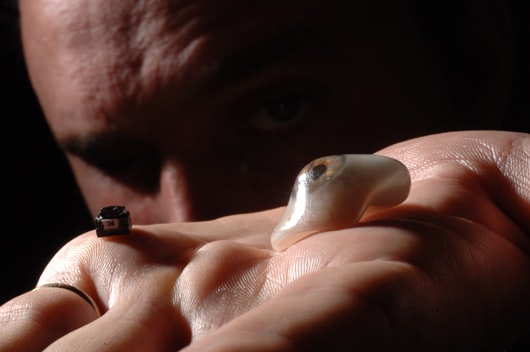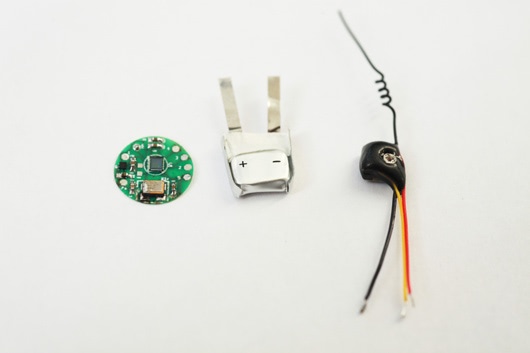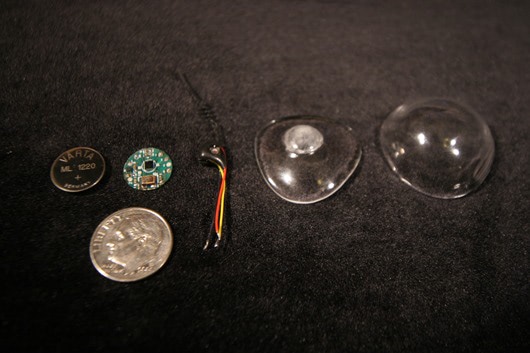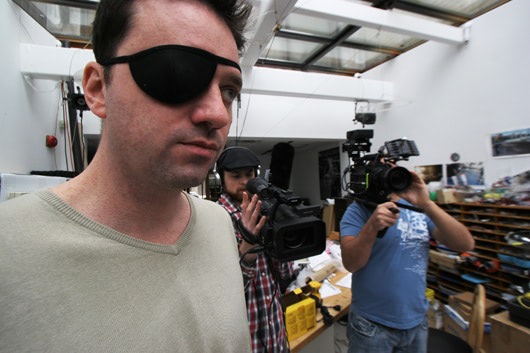
The Eyeborg Project is the work of Rob Spence, a 36 year old filmmaker residing in Toronto, Canada and Kosta Grammatis – an unemployed engineer from San Francisco, California. Rob's eye was badly damaged in an accident involving a shotgun at age of 13. Rob had his eye surgically removed and replaced with a prosthetic one after enduring ten years of pain. Now with the help of Kosta and a team of ocularists, inventors, engineering specialists, Rob is building a prosthesis that can capture and transmit video.
Warning: this video may contain shocking material.
In order for the project to be succesful Kosta Grammatis and his team implemeted the smallest, lightest, power efficient technologies that could be found. The world's smallest CMOS cameras -- 1.5 mm square are being used, small enough to be lost in a sneeze.

The video signal is being transmitted wirelessly to be recorded elsewhere by an RF Transmitter that's smaller than the tip of a pencil eraser, and lithium polymer battery technology is powering the eye. Kosta envisions that the data will be sent to a backpack to be recorded.

Rob Spence is currently working on a documentary film about the Eyeborg Project and the experience of living with a bionic eye. He hopes it will raise questions and build awareness regarding issues around surveillance in our society.

eyeborgblog.com | Related: Is Your Tooth Ringing? | Roboswift, Eyes In Disguise | Robofly

doodiepants
We're big "Eyeborg" fans as well. Put up 2 vids also. This is one badass project. http://doodiepants.com/2010/08/15/man-installs-camera-eye-socket-eyeborg-project/
Posted on
Hendrik-Jan Grievink
A good eye for documentary filming indeed (pun intended). In the heighdays of Hollywood, the close-up of an actors' eyes at the climax of a movie was the ultimate means of expression for actor, cameraman and director. It turned numerous moviestars instantly into icons of cinematography. Because of this reason, actors would demand a minimum of close-up shots when they signed their contracts, forcing directors to choose economically driven motivations over artistic ones, thus leading into inflation of the close-up. At the moment game industries (first person shooters!) are taking over movie industies, it's funny to see this development. Our eyes have always been our window to the world, but what came to our eyes increasingly became mediated experiences. Now we witness our eyes becoming mediated in themselves. A story with a happy ending?
Posted on